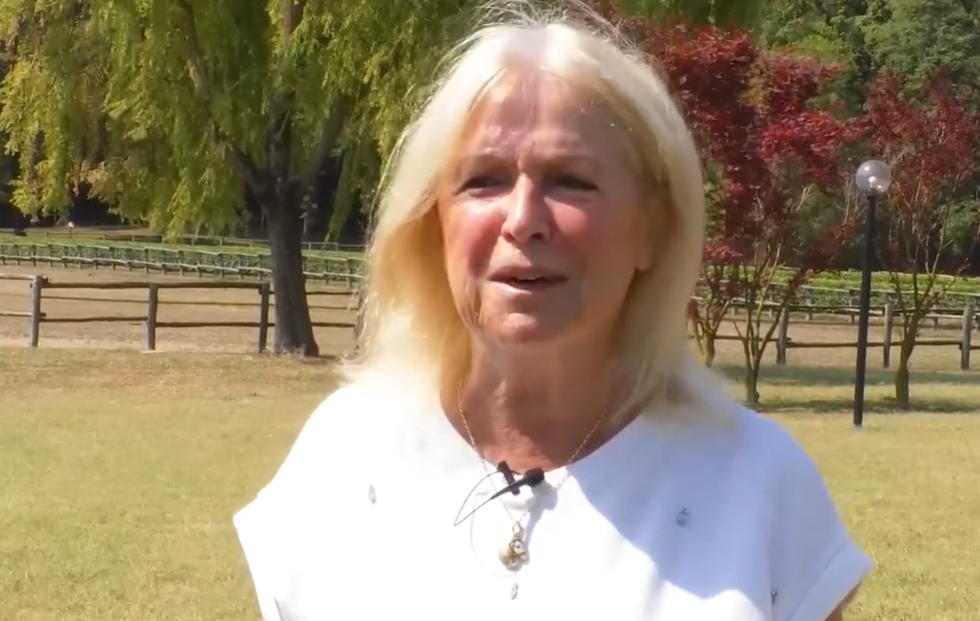BEZZERA (ANAC BREEDERS): "NO NEED TO DECREASE, BUT TO OPTIMIZE"


Our debate on the situation of Italian gallop racing continues. Today it's the turn of Isabella Asti Bezzera, who has been in the forefront for years with the Blueberry stable and with the breeding farm she runs with her trusted husband Guido. She has often held important roles in the field of category representation; she is currently at the helm of ANAC, the association that brings together thoroughbred horse breeders, an important branch of ANG (the National Gallop Association). We also asked her to take part in the discussion that began after the interview with Franco Castelfranchi that was published a few days ago.
Mrs Bezzera, what do you think of the theories put forward by Franco Castelfranchi in our pages?
‘Dr Castelfranchi's “lectio magistralis”, with its provocative intent, has certainly had the merit of opening a debate that will certainly benefit the sector. Some of the concepts may be agreeable, but I beg to differ with others.’
For example?
"Starting with the hypothesis of the absolute necessity of a conspicuous decrease in the number of races. I think that in the current situation such an initiative would lead to an even more evident and pronounced disaffection of horse racing enthusiasts who, due to the lack of supply, would turn to other types of betting; there would also be a loss of owners with a consequent further decrease in the number of horses bred and purchased, in short, it would trigger a perverse spiral.It's true that good horses are born above all from the quality but also from the number of subjects in activity. The number of races should therefore not be reduced, but optimised: for example, it is necessary to avoid concomitance in the main racecourses when group races are held in one of them. Let's take an example: on 27/4 there will be a super day at Rome's Parioli with Elena in the awaited race, and there will also be a race in Milan, resulting in a day with little appeal, with obvious difficulties in finding top-level jockeys and good horses, which will therefore attract few spectators and bets."
What is your opinion on racecourses? Here too there are those who would like to see a reduction in their number...
"I don't think racecourses should be closed, but they should be better managed, perhaps under the control of the MASAF (the Italian Horseracing Authority). The use of contributions from agreements should be monitored, a procedure which, I believe, the Ministry has already started. Once the quality parameters required for each type of racecourse have been established, those unable to achieve and maintain them will be forced to invest in improvements or close. The number of days assigned to each company must take into account mainly the holding capacity of the tracks, trying to limit the days in winter to racetracks with only grass tracks. Even the smaller facilities have a job to do: they must not be closed but must be made efficient for a certain category of horses that cannot be forgotten. Only the ‘dead branches’ should be cut, i.e. those racecourses whose management companies don't intend to invest but to live solely on subsidies."
And what about the other issues?
‘I think it's very simplistic to dismiss the Ministry's great success in getting the VAT rate on foals lowered to 5% with a simple “WELL, BUT....” without considering the epochal turning point of having finally identified and sanctioned: horse breeding as an AGRICULTURAL ACTIVITY, a manoeuvre that the whole of Europe envies us.’
What do you think is the best recipe for turning things around?
"To relaunch the sector it's essential to start by improving breeding. It's no coincidence that when breeders could take advantage of the Provvidenze, Italian horse racing with its products was a world leader, with a quality that attracted countless important foreign operators to our auctions. In those days good mares were bought, not sold. The quality of the broodmares is essential for a recovery. I think the concept has been understood: the Ministry has already started to reward good mares with an 80% premium, but further incentives are needed to retain the mares that win group and listed races. One way forward could be to link the results in these races to significant incentives to be used solely for the purchase of valuable breeding stock.
In summary, I believe there are some essential points for the revival of the sector:
1) INCREASING BREEDING
2) CREATION OF AN AGENCY FOR HORSE RACING
3) CONSTANT PAYMENTS NO LATER THAN 90 DAYS
4) INCENTIVES TO INCREASE BETTING REVENUES
5) COME BACK OF TECHNICAL BODIES.
These are ambitious objectives, but with the current MASAF (the Italian body that regulates and promotes the sector) that is working with passion and determination for the sector, with the determined undersecretary La Pietra, with the tireless General Manager Ingegner Chiodi and his staff, the horizon is now certainly less dark and the objectives achievable. My mantra is: let's continue to work and believe in it."